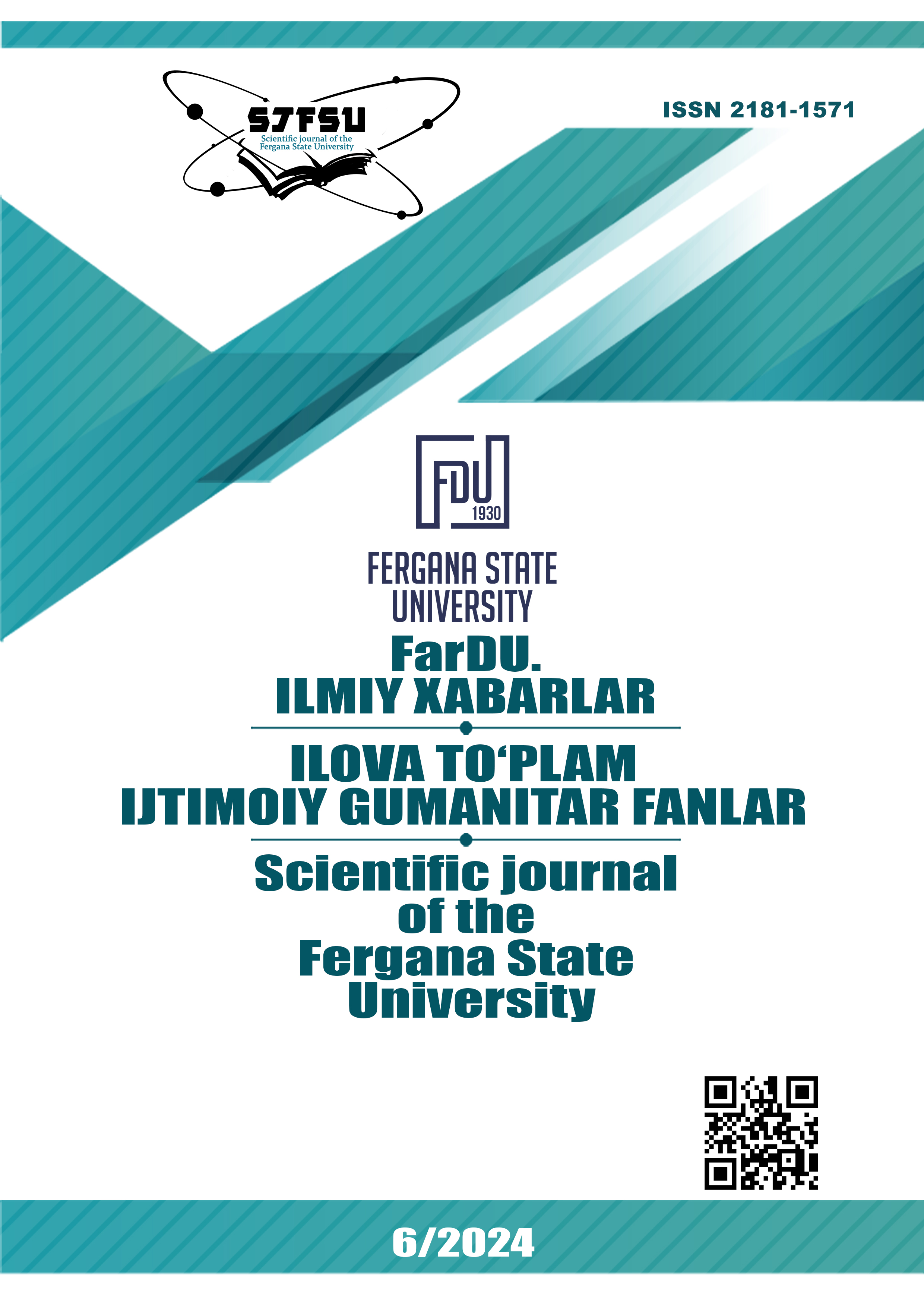Pedagogical-psychological and social characteristics of teaching english to students in inclusive education
Keywords:
inclusive education, English language, pedagogical-psychological characteristics, socialization, students with special educational needs.Abstract
This article analyzes the pedagogical, psychological, and social characteristics of teaching English to students in inclusive education settings. It highlights the importance of adapted methodologies, individualized approaches, and communicative methods for students with special educational needs. The paper also explores the role of psychological support and factors influencing students' socialization in the learning process. The significance of inclusive education in promoting societal development and democratizing the educational system is emphasized.
References
Shaykhutdinov, S. (2020). Inklyuziv ta'lim: nazariy asoslar va amaliy yondashuvlar. Toshkent: O‘zbekiston davlat pedagogika universiteti nashriyoti.
Gulomova, L. (2019). Pedagogik psixologiya: nazariy va amaliy masalalar. Toshkent: O‘zbekiston milliy universiteti nashriyoti.
Zafarov, N. (2021). Innovatsion texnologiyalar va inklyuziv ta'limda samarali pedagogik metodlar. Samarqand: Samarqand davlat universiteti nashriyoti.
Kadirova, M. (2018). Maxsus ehtiyojga ega o‘quvchilarni ta'limda qo‘llashda zamonaviy metodlar. Buxoro: Buxoro davlat universiteti nashriyoti.
Jalilova, A. (2020). Ingliz tili o‘qitishda interaktiv metodlar va ularning samaradorligi. Tashkent: O‘zbekiston davlat jahon tillari universiteti nashriyoti.
Sirojiddinov, R. (2017). Psixologik qo‘llab-quvvatlash va inklyuziv ta'lim. Tashkent: Akademnashr.
Muradov, D. (2019). Ingliz tilini o‘qitishda pedagogik texnologiyalarni qo‘llash. Toshkent: Toshkent davlat pedagogika universiteti nashriyoti.
Akramov, F. (2021). O‘quvchilarning ijtimoiylashuvi va inklyuziv ta'lim: muammolar va yechimlar. Toshkent: "Ijtimoiy o‘qituvchilar" nashriyoti.
Salimov, J. (2020). Pedagogik psixologiyaning inklyuziv ta'limdagi o‘rni. Tashkent: O‘zbekiston psixologiya instituti nashriyoti.
Rizayeva, T. (2018). Kompyuter texnologiyalari va innovatsion o‘qitish metodlari: inklyuziv ta'limda qo‘llash. Andijon: Andijon davlat universiteti nashriyoti.
Downloads
Published
Issue
Section
License
Copyright (c) 2025 Scientific journal of the Fergana State University

This work is licensed under a Creative Commons Attribution-NonCommercial-NoDerivatives 4.0 International License.

